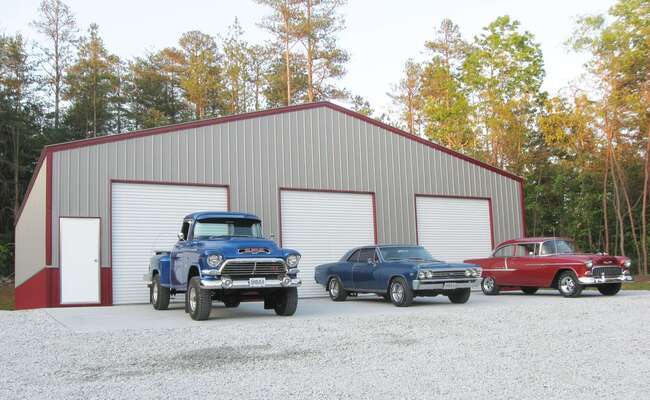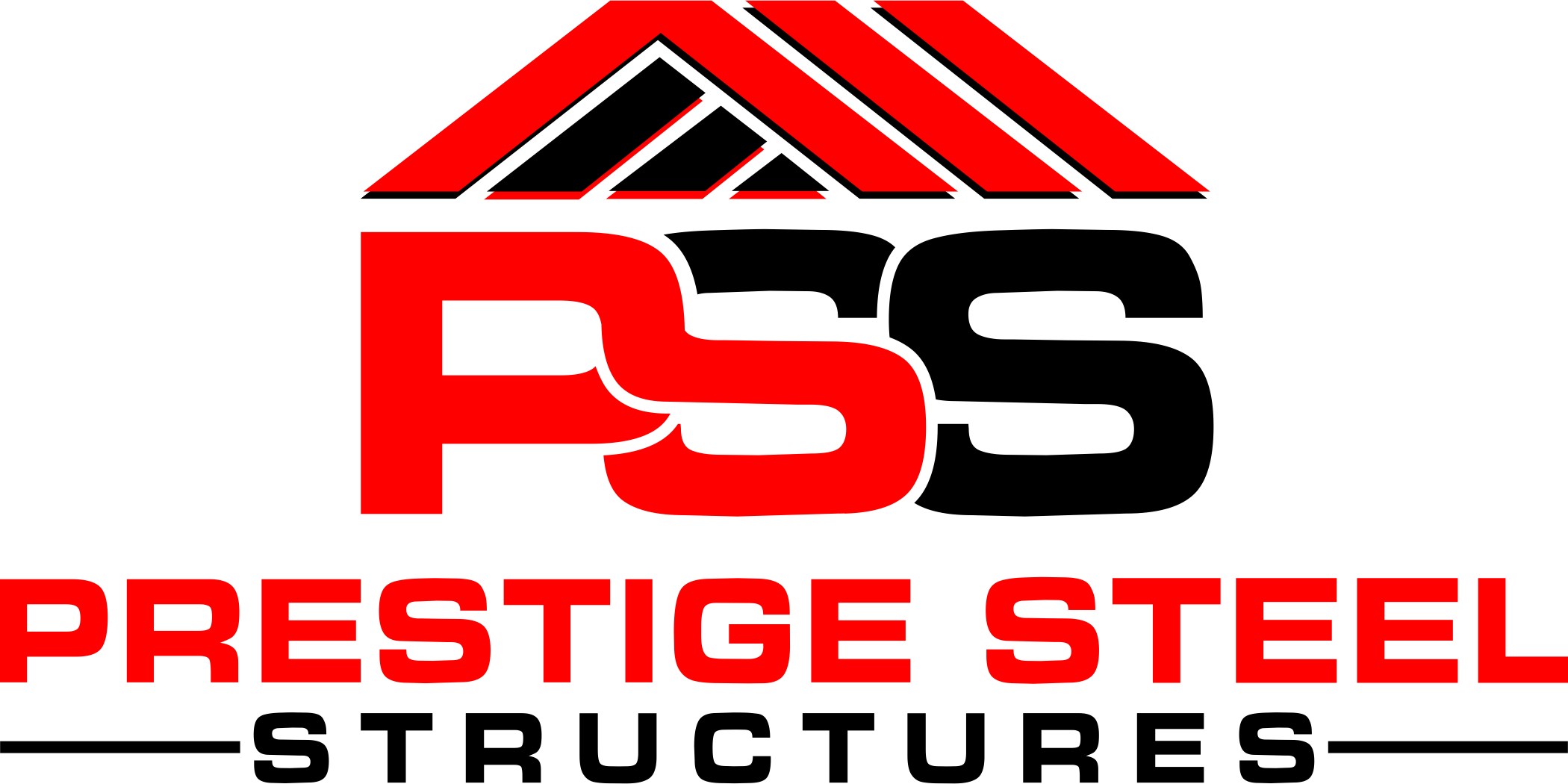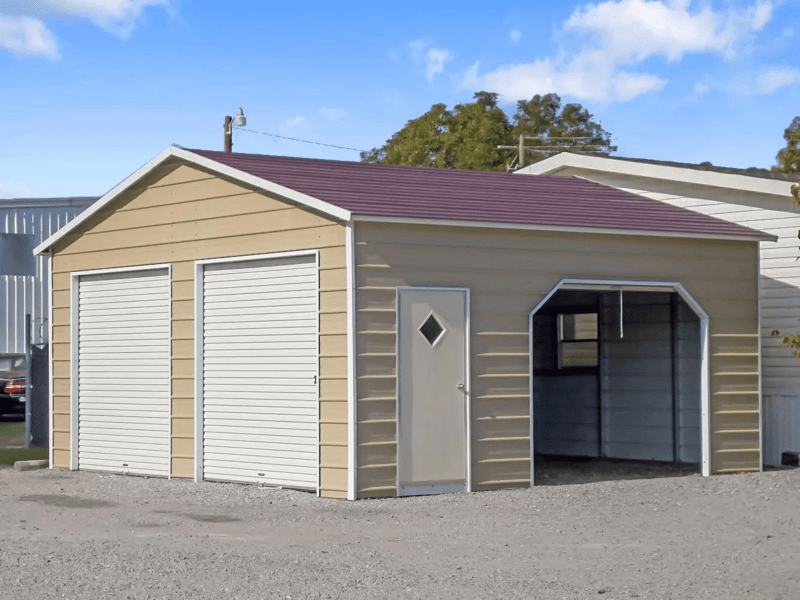Need a safe place to store your car, boat, or RV? Metal garages offer strong, long-lasting protection for your valuable vehicles and equipment. These structures can be customized to fit your exact needs. Whether you need a carport, a workshop, or even a personal hangout space, a metal garage can do it all.
One of the biggest advantages of metal garages is their durability. They are built to withstand harsh weather and heavy use. You won’t need to worry about repairs often, which saves money in the long run. Plus, they are much more affordable than building a traditional garage from wood or brick.
With flexible design options, you can choose the size, layout, and features that work best for your space. Metal garages are a smart investment for homeowners who want a simple, cost-effective solution for storage and protection. Explore your options today and see how a steel garage can make your life easier.

Different Kinds of Metal Garages You Can Choose From
There are many types of metal garages available to fit your space and storage needs. Each one can be fully customized to match the size and purpose you require. Whether you’re storing vehicles, equipment, or using the space for a workshop, there’s a design that will work for you.
Basic Style: Regular Roof Garages
Regular roof garages are the most budget-friendly option. They have rounded edges and panels that run side to side. This style looks similar to a barn and works well in areas with mild weather. It’s a simple, affordable choice for basic vehicle or equipment storage.
Stronger Option: Boxed-Eave Roof Garages
Boxed-eave garages, also known as A-frame garages, have a roof design that looks more like a house. They also use horizontal panels but are built stronger than regular roof models. These are great for areas with some wind but not ideal for places with heavy snow or rain. They blend easily with other buildings on your property and offer a good mix of strength and cost.
Most Durable: Vertical Roof Garages
Vertical roof garages are built to handle the toughest weather. Their panels run up and down, which helps water, snow, and debris slide off easily. This is the best option for areas with lots of rain or heavy snow. It’s the strongest and most weather-resistant garage style you can get.
Fits One Vehicle: One-Car Garages
One-car garages are typically 12 to 18 feet wide. You can adjust the length based on the type of vehicle you own. They are perfect for everyday cars, small trucks, or even as storage for tools and equipment.
Room for Two: Two-Car Garages
Two-car garages are a great choice if you need more parking or storage space. These garages are designed to fit two vehicles comfortably while leaving room to move around or store other items.
Extra Space: Three-Car Garages
Three-car garages start at around 20 feet wide and can be expanded to over 30 feet. They’re ideal for families with multiple vehicles or for anyone needing lots of storage space. These garages can also be used as a combination of parking, storage, and workspace.
No matter your storage needs, there’s a metal garage option that fits your lifestyle and budget. Each type is customizable, durable, and designed to make your property more functional.

What to Know About Metal Garage Pricing
Understanding the cost of a metal garage starts with careful planning and preparation. Many factors can affect the final price, so it’s important to be thorough when mapping out your project. A well-planned design helps avoid surprises and keeps the process smooth from start to finish.
Steps to Plan and Build a Metal Garage
Begin by contacting your local building department. Ask about any city, county, or state rules that could affect your build. This helps avoid delays and ensures your garage meets local codes. Understanding zoning and building restrictions early will save time and money later.
Set a clear budget before making any decisions. Your budget will guide the size, design, and extra features you can include. Common add-ons like insulation, windows, and custom doors will affect the total cost.
Choose a location on your property where the garage will go. Measure the space carefully and think about possible future expansion. Consider how you’ll access the garage and make sure the spot is easy to reach.
Secure any necessary permits before construction begins. Permit costs and requirements vary depending on where you live, so check with your local office.
Once the design is final, order your building materials. Work with a supplier who offers quality steel and reliable delivery times. Material quality can influence durability and long-term value.
Hire a contractor to build a strong foundation. A stable base is essential for keeping your garage safe and level. Skipping this step can lead to costly repairs later.
After the foundation is ready, it’s time to install the garage. Some companies offer delivery and installation services. If you enjoy hands-on projects, you can choose a metal garage kit and install it yourself.
Metal garages are affordable and long-lasting, but planning is key to staying within your budget. With the right approach, you’ll get a reliable, cost-effective structure that meets all your needs.

Do You Need a Permit Before Installing Your Metal Garage?
Before you begin installing a metal garage, make sure to check if you need a building permit. Permits can add to the overall cost, but skipping them could cost even more. If your area requires a permit and you build without it, you may face large fines. In some cases, you might even be forced to remove the entire structure. Always ask your local building office about permit requirements before starting any garage installation project. Taking this step early can save time, money, and legal trouble down the road. Proper permits also help ensure your structure meets local safety standards.
What Impacts the Cost of a Metal Garage?
Metal garage prices vary widely depending on many factors. There is no one-size-fits-all price since every project is different. Size, materials, and custom features all play a role in how much you’ll pay. To get a clearer idea, here are common size ranges and their estimated costs:
A 12-foot by 22-foot garage is perfect for one car and offers compact storage.
A 24-foot by 24-foot garage fits two vehicles and provides extra room for tools or equipment.
A 35-foot by 75-foot garage is great for a workshop or larger vehicle storage needs.
The overall cost of each size can vary depending on materials, location, and additional features.
Main Factors That Change Garage Pricing
The first factor is size. The wider, longer, or taller your garage is, the more material and labor it requires. Larger sizes lead to higher costs. The second factor is weather conditions. Areas with strong winds or heavy snow need stronger steel framing. This adds to the cost because thicker materials and more support are required.
Customization is another key pricing factor. You can add features like extra doors, windows, insulation, or decorative trim. These upgrades improve function and appearance but increase the price. The last factor is the manufacturer. Pricing can vary by region and supplier. We work with over 30 manufacturers, and each has different pricing based on your location and shipping needs.
Understanding all these elements helps you plan a better budget and avoid unexpected costs. By knowing what affects pricing, you can design a garage that fits your needs without going over budget.
Why Choosing a Metal Garage is a Smart Investment
When comparing building materials, steel stands out for its strength and affordability. Unlike wood, steel is stable in price and extremely durable. If you’re deciding between a wood garage and a metal one, steel is the better long-term choice. It offers more value, less maintenance, and greater protection for your property.
Strong and Built to Last
Metal garages are built to handle everyday wear and extreme weather conditions. Steel resists wind, rain, and snow, offering dependable protection year-round. Unlike wood, it is fire-resistant, which adds an extra layer of safety for your belongings. Metal buildings are ideal for areas prone to storms or wildfires. With their tough structure, they provide peace of mind and long-lasting durability.
Save More with Lower Construction Costs
Steel garages are more affordable to build than traditional wood or concrete buildings. The parts are pre-cut and pre-drilled before delivery. This makes installation faster and reduces labor costs. Because of this, you can often cut construction expenses in half. The faster build time also means you can start using your garage sooner.
Minimal Upkeep Needed
Maintaining a steel garage is simple and cost-effective. You won’t need to worry about rot, warping, or cracking like with wood. A quick pressure wash from time to time keeps it looking clean and new. Steel also resists termites and other pests, so there’s no need for expensive treatments. Over time, this low maintenance saves both time and money.
More Than Just Storage
Metal garages are extremely versatile. You can customize the size, layout, and features to match your lifestyle. Use your garage as more than just a parking space. It can double as a home gym, playroom, office, or entertainment area. The flexible design makes it easy to turn your garage into a multi-use space that fits your everyday needs.
If you want a structure that lasts, costs less, and adapts to your goals, a metal garage is the clear winner.
Conclusion
Many top providers today offer a wide selection of metal garages to fit different needs and budgets. Options range from basic storage units to large, fully customized structures.
These companies often stand out by offering a mix of affordable pricing and dependable customer support. Most have experienced building specialists who help guide you through the entire process, from selecting the right size to choosing features that add function and style.
Whether you need a single-car garage or a larger multi-use building, professional teams are available to help ensure you get the right solution. With a focus on quality and customer satisfaction, these providers have earned the trust of homeowners across the country.
Frequently Asked Questions
How long does it take to install a metal garage?
Installation usually takes one to three days, depending on the garage size and site preparation. Custom builds may take longer.
Can I insulate a metal garage for year-round use?
Yes, insulation is a popular add-on. It helps regulate temperature and makes your garage usable in any season.
Will a metal garage add value to my property?
A well-built metal garage can increase property value by adding storage, functionality, and curb appeal for future buyers.
Can I finance a metal garage purchase?
Yes, many suppliers offer financing plans. These can help you spread out payments while starting your project sooner.
What foundation do I need for a metal garage?
A concrete slab is the most recommended base. It ensures stability, longevity, and proper support for your structure.


